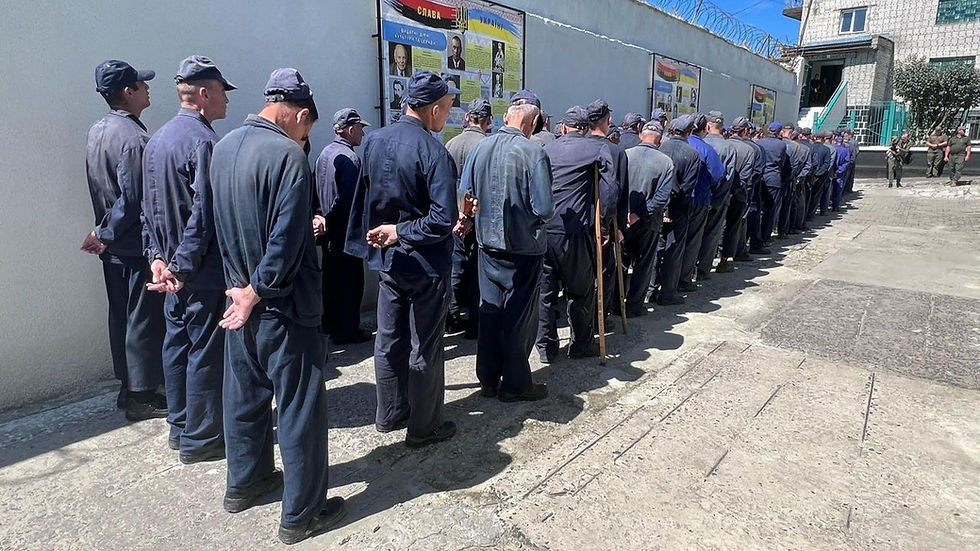Continued European dependence on Russian gas
- Matthew Parish
- 1 hour ago
- 3 min read

In the past few years much has been made of how quickly Europe moved to wean itself from dependence on Russian pipeline gas. That shift is often presented as decisive, yet a careful look shows that the structural problems remain — not least because the decline of one route only opened space for others. Europe's struggle is not over, and the persistence of the so-called "last pillars" of Russia's energy leverage reveals a web of economic, political and normative failures that undermine long-term security and strategic autonomy.
One problem stems from the multiplicity of energy routes and the way some remained active while others were shut down. Since the outbreak of war in 2022, European pipeline imports from Russia fell dramatically, but that did not end all Russian energy exports to the continent. Instead liquefied natural gas (LNG) from Russia surged, often delivered through terminals in Western Europe and then mixed into the broader energy network, making the origin difficult to trace. Because once gas is regasified it becomes indistinguishable, European markets — and customers — remain exposed. This undermines the assumption that cutting off pipelines automatically ends the risk; it shows that strategically significant dependency can simply shift to another channel.
A second, equally troubling problem lies in the political and corporate networks that have sustained Russian energy revenue long after the legal and normative rupture that sanctions were supposed to bring. Former high-ranking European politicians and officials found new roles in Russian energy companies or Russian-affiliated think tanks. Their involvement long predates the war, but crucially they retained influence after 2022. Through these connections, and via lobbying by large European energy firms still tied to Russian gas and LNG supply, the flow of money continued — in effect sustaining the very regime that is bombing Ukrainian homes even while many European governments publicly denounce the aggression.
The third problem is institutional inertia and delay. Regulatory and legislative efforts to shut Russian energy out of Europe remain incomplete and subject to lobbying pressure. Contracts running many years into the future — often locked-in long-term agreements — keep the financial machinery of Russian energy alive. As a result, revenue continues to flow to Moscow, funding its war economy and diminishing the effectiveness of sanctions. At the same time, environmental and energy-transition arguments are sometimes used as cover: companies claim that abandoning Russian gas abruptly would undermine European carbon-reduction goals or make energy less affordable.
A fourth problem is strategic complacency. The transition away from Russian gas is often framed as a narrow technical or economic issue — energy security measured in pipes, terminals, prices. But the dependency was never merely economic. It served as a strategic lever, giving Moscow influence not only via direct exports but also via political corruption, corporate capture and even social divisions in Europe. By failing to treat energy ties as part of a broader geopolitical vulnerability, European governments and elites allowed that lever to remain active.
Finally, there is a moral and reputational dimension. Even if sanctions and policy changes gradually close the pipelines and terminals, the fact that many European companies and formerly senior politicians profited — and continue to profit — from Russian energy supplies during a brutal war undermines the moral authority of Europe's stand in support of Ukraine. It compromises coherence: how can Europe credibly condemn atrocities funded by its own money, while still sustaining the supply chains that feed the aggressor's revenues?
In the absence of a comprehensive strategy that addresses all these layers — economic, institutional, political and moral — the shift away from Russian energy remains fragile. The decline of pipelines was a necessary step. But unless European states close every channel of dependency, including LNG imports, end long-term contracts, break with corporate ties, and regulate against political capture, Moscow will continue to hold leverage — even if invisibly.
That is why, for Europe, energy security must be more than a matter of flows and contracts. It must become a test of resolve — to separate commerce from complicity, supply from subjugation, and fossil-fuel revenues from a regime waging war. Without such a transformation, the "last pillars" may crumble outwardly — but the underlying vulnerability will persist.




